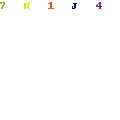The Bahamas is a highly developed country with no regular military force. However, the country does maintain a small paramilitary force known as the Royal Bahamas Defence Force (RBDF). The RBDF consists of around 1,500 personnel and is responsible for protecting the territorial waters and airspace of the Bahamas. The RBDF also provides support to other government agencies such as the Royal Bahamas Police Force and Customs Department. In addition to this, the RBDF also participates in regional security initiatives such as Operation Carib Shield which is aimed at countering drug trafficking in Caribbean waters. The Bahamas is a member of several international organizations such as the United Nations (UN) and Organization of American States (OAS). See naturegnosis to learn more about the country of Bahamas.
Defense
The defense is based on volunteerism and is mainly focused on coastal surveillance. It (2008) amounts to 860 men with 14 patrol boats. Defense spending in 1996 was 0.7% of GDP. Guyana has access to a marine base in the Bahamas. To see related acronyms about this country, please check ABBREVIATIONFINDER where you can see that BAH stands for Bahamas.

The Bahamas is often hit by hurricanes, and the 2004 hurricane season was expected to be particularly bad. Hurricane Frances hit the island in August and the following month the northern islands were hit by slightly weaker Hurricane Jeanne. In 2005, the northern islands were hit again. This time by Hurricane Wilma. On the Grand Bahama, the sea and the strong winds destroyed homes and schools, leaving around 1,000 people homeless.
In September 2005, the Bahamas and several other Caribbean Petrocaribe countries signed the agreement with Venezuela that allowed them to buy oil under a special agreement. Only part of the price is paid in cash – based on the world market price. The rest is financed over 25 years on a 1% loan.
In March 2006, the Bahamas abolished the death penalty for murder, which was a significant advance on the human rights front. The change led to 30 death sentences being turned into life imprisonment.
FNM won the parliamentary elections in May 2007, and Ingraham was put in the post of prime minister. Upon his accession, he declared that “foreign investors have disproportionate power in the country”.
- COUNTRYAAH: Do you know where is Bahamas on the world map? Come to see the location and all bordering countries of Bahamas.
The FNM suffered a devastating defeat in the 2012 election. It went up 12 seats from 21 to 9, while the PLP advanced 10 seats from 19 to 29. The PLP’s Perry Christie became new prime minister.
Police violence remains a serious problem in the country. In 2012 alone, 6 were killed by police. Impunity is widespread. No police officers were brought to justice for the murders. The murder rate dropped 13% from 2011 to 12, but remains high. 111 were murdered in 2012. It contributes to the violence that the Bahamas is a drug transit country from Latin America to the United States.